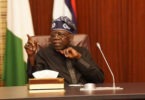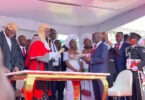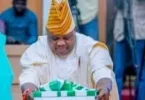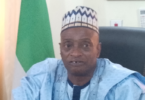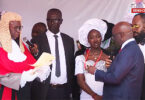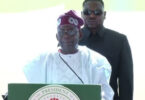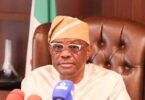Governors elected under the Peoples Democratic Party (PDP) banner are convening today in Jalingo, the capital of Taraba State, under the aegis of the PDP Governors Forum.... CLICK TO READ THE FULL NEWS HERE▶▶
The meeting, which comes barely a month after a similar meeting in Enugu, is expected to address critical issues affecting both the country and the party, with a particular focus on the ongoing crisis within the Rivers State chapter.
According to reliable sources, the primary topic on the agenda is the contentious letter written by the acting National Chairman, Umar Damagum, and the National Secretary, Senator Samuel Anyanwu, concerning a legal dispute in Rivers State.
In an August 16 letter to the Deputy Chief Registrar of the Court of Appeal in Port Harcourt, Damagum and Anyanwu stated that the PDP “Did not authorise the filing” of a Notice of Discontinuance on July 24 in a case involving the party at the Appeal Court.

Barau welcomes Kano PDP stalwart to APC
APC seeks end to Benue crisis, splits caretaker c’ttee between Akume, Gov Alia
The case, with Appeal No. CA/PH/307/2024, is against 27 members of the Rivers State House of Assembly who defected from the PDP to the All Progressives Congress (APC).
The letter was considered a direct counter to an earlier communication from the party’s legal adviser, Kamaldeen Ajibade, and has since sparked controversy and heightened tensions within the PDP.
The governors are expected to deliberate on this issue to arrive at a resolution that will help deescalate the situation in Rivers State and prevent further complications within the party.
While addressing the controversy around the letter on Wednesday, Damagum had said there was nothing out of the ordinary about him and the secretary of the party authoring the letter.
“There’s precedent for what we did. During Kashamu’s case and the Anambra issue, the chairman and secretary acted as a team. I always consult with my team before making decisions,” he said.
“Nobody can intimidate me into abdicating my responsibility. I have a duty to stabilise this party, and I intend to carry out that duty without fear,” he added.
A senior party member informed Daily Trust that the governors will also address the broader national hardship and the ongoing party congresses across various states.
“The state of the party as it stands today will be a key point of discussion,” the source said.
It was also gathered that the ongoing congresses, particularly the upcoming state congresses where state chairmen will be elected, are also expected to be a significant focus of the meeting.
“The ward and local government congresses have been concluded, and now the focus shifts to the state congresses. The election of state chairmen is critical to the party’s future,” the source added.
In a related development, Kola Ologbondiyan, a chieftain of the Peoples Democratic Party (PDP) and former spokesman for the Atiku/Okowa Presidential Campaign, has called on Damagum to step down as acting national chairman and return to his role as Deputy National Chairman (North) to enable genuine reconciliation within the party.
Ologbondiyan also expressed reservations about the recent letter from Damagum and Anyanwu regarding disciplinary issues in Rivers State, arguing that it raises further concerns about impartiality within the party.
“If the party that he is the acting chairman has consistently said that those who left the party has vacated their seats and the chairman and secretary wrote to the court to take a side between two members of the party. It means he has taken side,” he said.
Ologbondiyan argues that the North Central zone has been unjustly denied the position of National Chairman following the suspension of Dr. Iyorchia Ayu.
He insists that for true reconciliation to occur, Damagum must revert to his previous position, allowing the North Central to produce the next National Chairman.
He also urged Damagum to appear before the Olagunsoye Oyinlola-led reconciliation committee.



